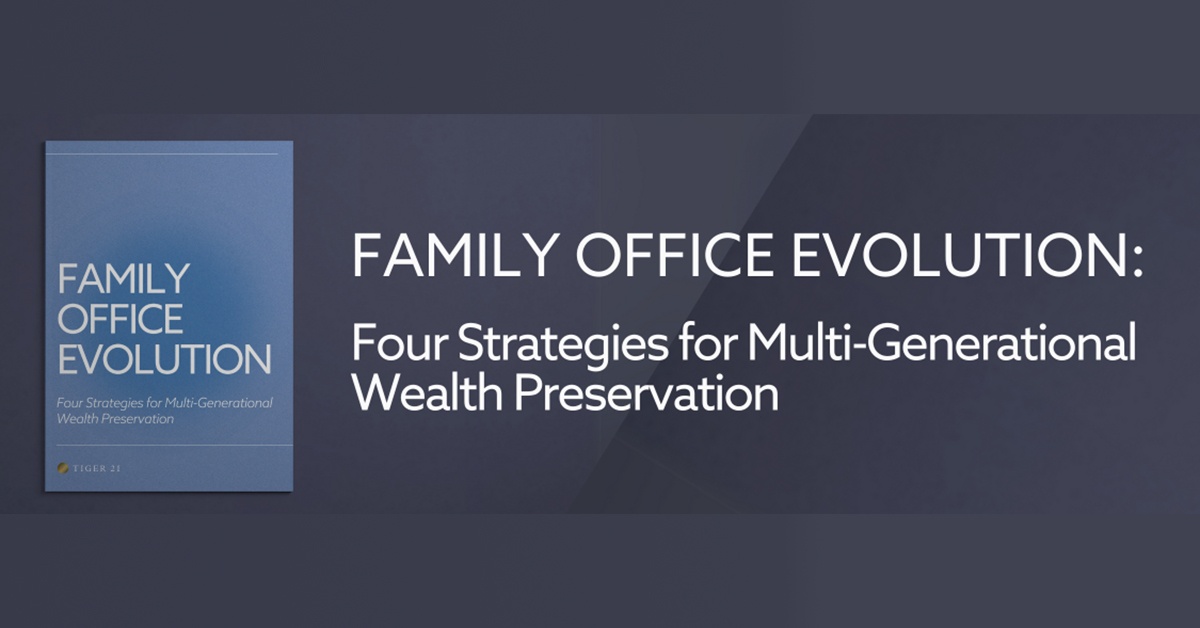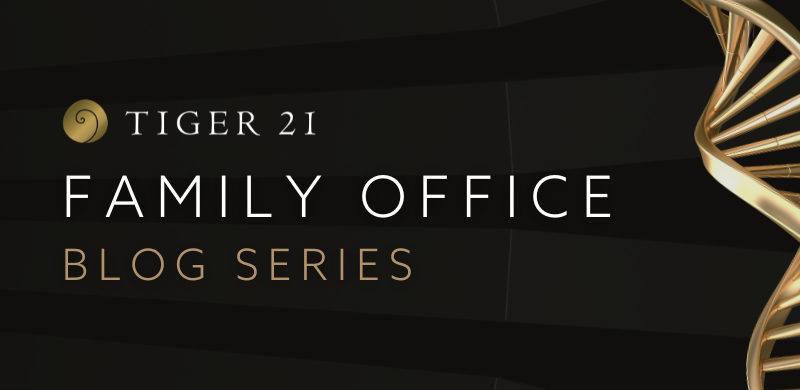The Difference Between Family Office vs. Wealth Management

The world of affluent wealth management is filled with choices, tailored to meet the complex needs of ultra-high-net-worth families. Among these options, two prominent models emerge: family offices and traditional wealth management services. These entities serve as crucial pillars of financial management, each offering distinct advantages and considerations. This blog explores key differentiators to guide you towards an informed decision aligning with your financial objectives.
What is a Family Office?
A family office is a dedicated and comprehensive wealth management entity established by affluent families to oversee their financial affairs. It provides a range of personalized services, including investment management, tax optimization, estate planning, and philanthropy. The primary goal of a family office is to preserve, grow, and strategically manage the family’s wealth across generations while addressing their specific needs and aspirations. Family offices can take various forms, such as single family offices (SFOs) serving a single wealthy family or multi-family offices (MFOs) catering to multiple affluent families, offering shared resources and expertise. The core essence of a family office is to offer specialized financial guidance that reflects the family’s values, objectives, and long-term legacy considerations.
What is Wealth Management?
Wealth management refers to a comprehensive approach to managing an individual’s or family’s financial resources. Wealth management services typically include investment advisory, financial planning, tax optimization, retirement planning, estate planning, risk management, and philanthropic strategy. The ultimate goal is to provide individuals and families with a holistic financial plan that aligns with their unique circumstances, long-term aspirations, and risk tolerances.
Wealth managers collaborate with clients to create diversified investment portfolios, implement tax-efficient strategies, and ensure that assets are strategically allocated to achieve financial security and growth.
By leveraging expertise in various financial disciplines, wealth management seeks to navigate the complexities of the financial landscape, providing individuals and families with a cohesive roadmap that adapts to changing circumstances, market fluctuations, and evolving life goals. The aim is to empower clients with informed financial decisions and strategies that enable them to not only preserve and grow their wealth but also attain a sense of financial well-being and peace of mind.

What is the Difference Between a Family Office vs. Wealth Management?
These two approaches, while serving the same purpose, differ significantly in structure, services, and focus. In this section, we’ll dissect the distinct attributes of family offices and wealth management, shedding light on their unique offerings, advantages, and considerations. Whether you’re an UHNW individual seeking personalized guidance or a family aiming to secure your legacy, understanding these differences will pave the way for a well-informed choice that resonates with your financial aspirations.
Scope of Services
The scope of services offered by a family office vs. traditional wealth management differs in terms of depth, breadth, and customization. Family offices provide an all-encompassing approach that extends well beyond financial matters. This comprehensive scope is tailored to the specific needs and values of the family, focusing on wealth management across generations.
Conversely, traditional wealth management primarily centers on investment advisory and financial planning. While it addresses key financial aspects such as asset allocation, retirement planning, and risk assessment, the range of services is narrower than a family office. Standard wealth management may lack the customization and depth of services that family offices provide, which can encompass personal aspirations, family governance, and legacy planning.
Family offices exclusively cater to a single family or a select group of families, allowing for highly tailored strategies. Wealth management services, while effective in addressing financial objectives, might not extend the same range of non-financial services. Deciding between the two depends on the depth of assistance required and the desire for a broader spectrum of services.
Clientele
When comparing a family office and traditional wealth management, the clientele diverges significantly, reflecting their respective focuses and target audiences. Family offices are designed to cater exclusively to UHNW families, often requiring a substantial minimum wealth threshold for engagement. They offer bespoke services tailored to the specific needs, complexities, and aspirations of these affluent families. The client base is limited to a single family or a small group of families, ensuring personalized attention and customization.
Traditional wealth management services cater to a broader range of clients with varying levels of wealth, and services designed to address core financial needs. These firms can accommodate larger clientele due to their standardized approach and often have lower minimum investment requirements.
In essence, family offices serve UHNW families seeking services that encompass not only financial matters but also aspects like estate planning and philanthropy. Traditional wealth management offers essential financial planning and investment advice to individuals with diverse financial profiles. The choice between the two hinges on personalization and the level of financial complexity an individual or family requires.
Independence and Objectivity
Independence and objectivity are critical distinctions between a family office and traditional wealth management, influencing the level of personalized service and alignment with client interests.
Family offices inherently offer a higher degree of independence as they are privately owned and operated by the family. This autonomy allows family offices to tailor services without conflicts of interest, ensuring that recommendations align exclusively with the family’s goals and values. There is no pressure to promote external products or services, which enhances objectivity in decision-making.
Traditional wealth management services might operate within larger financial institutions or firms. While many uphold high ethical standards, they could be influenced by institutional affiliations, which might impact objective recommendations. The potential for conflicts of interest arises when wealth managers are incentivized to sell specific financial products or services.
Furthermore, family offices offer increased objectivity whereas wealth management firms might have multiple clients with varying interests. This differentiation in focus ensures that family offices prioritize the individual family’s financial well-being without being divided by broader considerations.
Cost Structure for Family Offices vs. Wealth Management
The cost structure between a family office and wealth management exhibits notable disparities due to distinct operational models and customization.
Family offices, particularly single family offices (SFOs), often entail higher costs due to their exclusivity and personalized approach. Establishing and maintaining an SFO involves substantial upfront expenses, including dedicated teams and infrastructure tailored to the family’s specific needs. These teams may include experts who require fee structures based on services provided, flat fees or a combination. Besides fees and salaries, ongoing operational costs also include technology and overhead, resulting in a more significant financial commitment.
On the other hand, traditional wealth management services might offer a more cost-effective option. Their standardized approach offers a fee structure based on percentage of assets under management (AUM) or transactional fees. Wealth management firms can also distribute costs across multiple clients, reducing the financial burden on individual clients.
However, family offices can counterbalance higher costs with enhanced customization and services that directly address unique financial complexities and aspirations. Traditional wealth management, while more cost-effective, might offer a less personalized approach .
When deciding between the two, clients must evaluate their willingness to invest in a higher-cost model that offers deeper personalization and exclusivity versus a standardized, cost-effective solution. The choice ultimately hinges on the level of customization desired and the financial resources available to support either approach.
Comparing Family Offices vs. Wealth Management
Understanding the nuanced differences between these two approaches empowers you to make a choice that resonates with your financial aspirations, ensuring generational success and financial security.
If you are a single family office principal looking for peers in similar positions, the TIGER 21 Family Office Group Membership may be a good resource for you. Learn more about TIGER 21 Membership here.
Download the Family Office Checklist
About TIGER 21
TIGER 21 is an exclusive global community of ultra-high-net-worth entrepreneurs, investors, and executives.
Explore the TIGER 21 Member ExperienceMember Insight Reports










